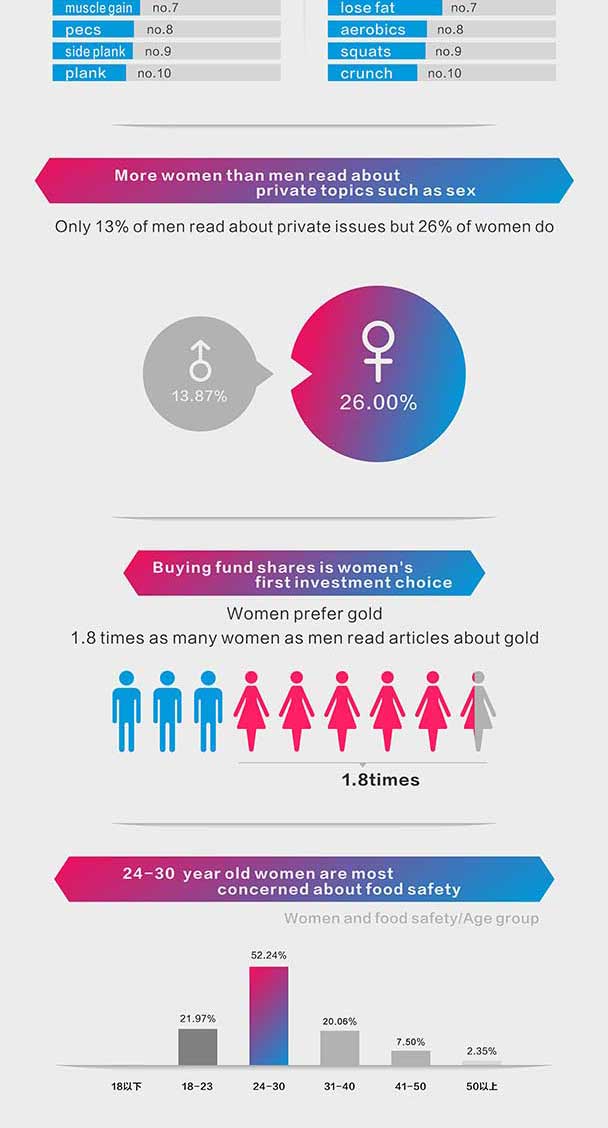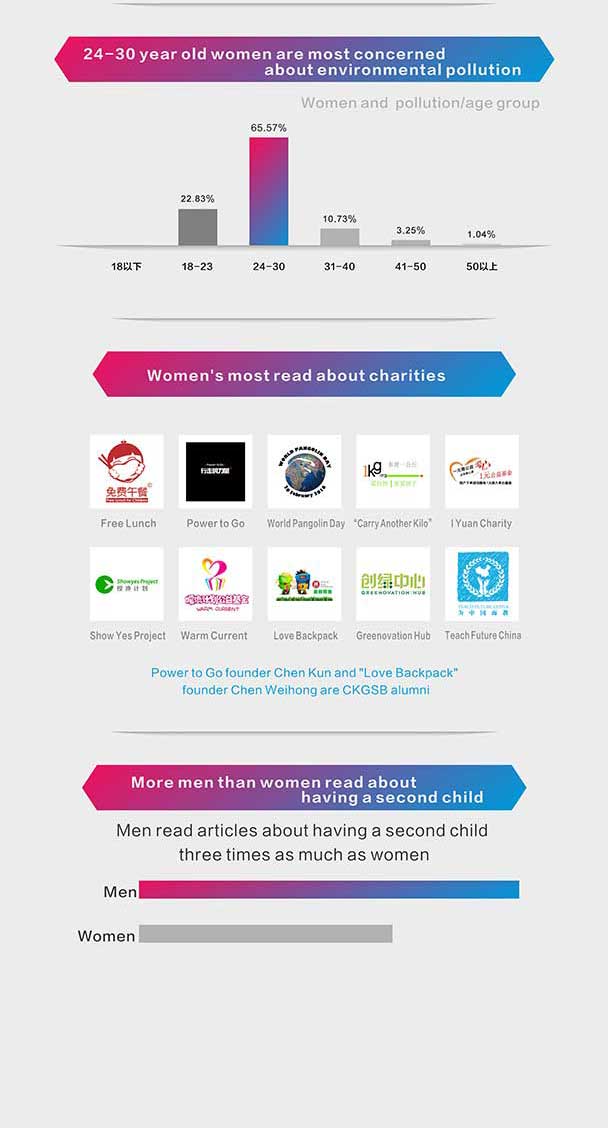A new survey out this week to coincide with International Women’s Day says Chinese women are considerably more likely than their male counterparts to donate to philanthropic projects. Chinese news app “Jin Ri Tou Tiao” (or “Today’s Hot Topics”), which counts more than 700 million Chinese among its users, says 5.62% of women say they are interested in philanthropy versus 3.96% of men (see infographic below).
That corresponds to previous surveys done in the west that say women are more likely to donate to charity than men, sometimes by as much as a factor of two. Researchers say women are more empathetic than men, with men more likely to treat money as a representation of their power, while women see it as something that not just provides security and freedom, but also as a means to realize their objectives and achieve their goals.
“As a result, marketers in China should target women more than men if they want their philanthropic projects to be successful,” said Juliet Zhu, Professor of Marketing at the Beijing-based Cheung Kong Graduate School of Business (CKGSB), which exclusively analyzed the survey’s data.
Two of the highest-rated philanthropy projects, as selected by Jin Ri Tou Tiao users, were led by actor Chen Kun and TV anchor Chen Weihong, current and former students of CKGSB’s EMBA Program, respectively. Chen Weihong’s initiative, titled “Backpack of Love” targets China’s so-called “left behind children”, whose parents have moved to larger cities in search of work, by helping to re-build the bonds between those children and their parents.
“These are great examples of how CKGSB encourages its students to do philanthropic projects,” says Zhu, who in 2014 pioneered the first mandatory course for social innovation to be offered by a business school in China. “Every year, our students are involved in hundreds of projects. Additionally, the celebrity effect can be very powerful in drawing attention to worthwhile causes, perhaps more so in China than elsewhere,” Zhu added.
Elsewhere in the survey, 73.8% of Chinese women declared themselves interested in entertainment – the top category – as opposed to 58.0% of men. Rounding out the top five most interesting topics for women in China were social issues, fashion, education & learning, and health.
International travel destinations for Chinese women also showed a clear preference for Asian locations, with three of the top ten in Thailand. In order they were: Bangkok, Tokyo, Paris, Singapore, Bali, Changmai, Seoul, Phuket, Kyoto and Rome.
To read a full copy of the report (in Chinese), please click here.
.jpg)
.jpg)
.jpg)

